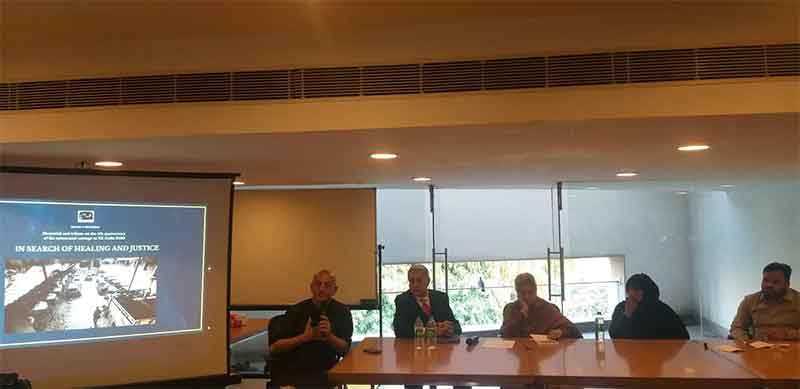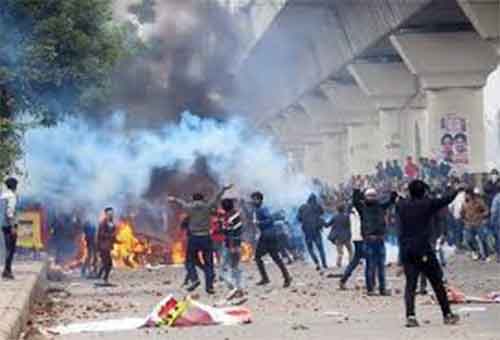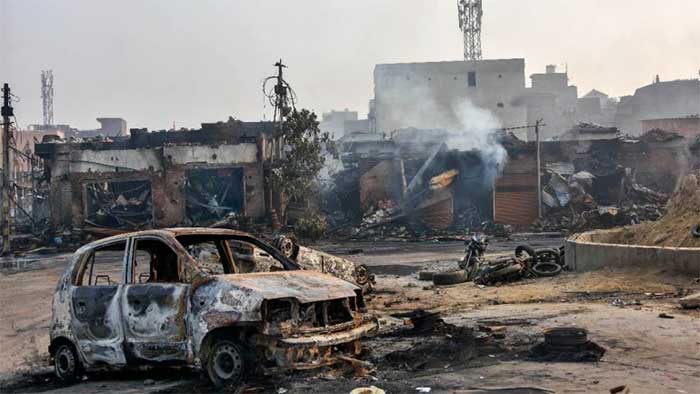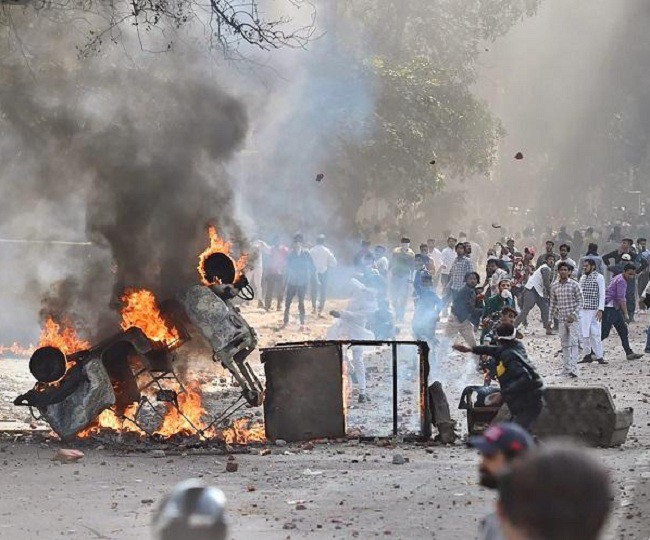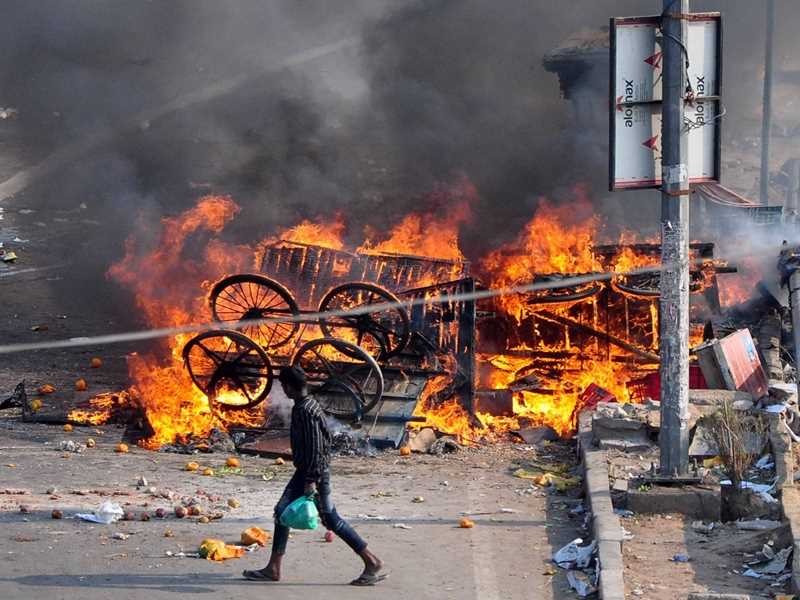
Chinua Achebe’s ‘There was a country’, a compelling account of Nigerian Civil War and the history of Biafra, not only details, from his perspective, the events that lead to the war and the war itself, but also throws light on various other relevant issues and topics, otherwise subdued and forgotten in the graphs and numerical of the war figures. Achebe makes it a point not just to highlight the Igbo people, their community, culture and the violence they were subjected to but also notes, subtly, the after effects of that violence and its everlasting impact on the people and their country. The war never ends with violence itself, but lives on, dragging its bloody remnants in the minds of the victims for ages to come.
The countless dead leave behind not just a particular body count and cramped up burial sites but also a legacy of blood, pain, fear and in some extreme cases a lifelong of dealing with split selves. The violence perpetrated in the past makes it way not just to the history textbooks and tabletop discussions but inaugurates a ceaseless trail of war infected memories, memories that carry on, rather unnoticed from one generation to another. These memories, either disfigure themselves in the form of nightmares or resurface, unexpected, during times and events that trigger the unearthing of the locked up stories and accounts of violence and severe ruthless victimisation.
Toni Morrison’s coinage of the term ‘rememory’ is an important phenomena that comes into play, when people who have been bred up on the grounds reared with blood, are thrusted into remembrances of the experiences that their fathers and forefathers had recounted innumerable times during their lives. In a narrow definition, a rememory can refer to a traumatic memory. Rememory, in commonplace internet definition, is when a memory is revisited. Rememory is when one visits a memory, mostly disturbing, time and again and it such ways that it effects the overall growth and development of an individual, leaving a prominently scarred watermark on them and their sense of their own self. The example of this can be found not just in Achebe’s Igbos in the Biafran War but in so many living bodies breathing all around us at all times. The Africans, the Native Americans, the Muslims in war ridden countries, probably the entire ‘ex-colonised’ population and so many others are living and breathing examples of people with long drawn history of violence perpetuated on their ‘native’ (in Frantz Fanon’s terms) selves. The entire history of humankind is littered with frequent eruptions of war, violence, riots and thoughtless killings to name a few. The violent undertakings that once benefited a small few, in their narcissistic manoeuvres, resulted in not just the death of millions but initiated the ever increasing burden of those who died on the generations that followed.
Indian ‘democracy’, for instance, now ever ridden with communal violence(in its ‘secular’ framework) continues to rear and water this burden of the death to innumerable proportions in the victims of such violence. The recent Hindu-Muslim riots in the capital of the country, not only caused loss of life, property and the ‘free self’ but also stirred memories and ‘rememories’ of other people and communities that were completely unrelated and unharmed because of the said violence. The stories of 1984 Sikh riots and killings that I had grown up on had, completely unnoticed by me, found a deep uncomfortable lace in the receding places of my mind. The current and ongoing violence not only lead to unprecedented eruptions of fear and apprehensions in the minds of those who were affected during those riots but also found their way, treacherous as it may be, to my own thoughts and constant mental health. The violence of ‘84-far off and forgotten, the blood- drained out and wiped and fear-suppressed and disfigured had unbeknownst to me harboured a silent yet volatile place in my mind and memories, a place that blew out, enabling the resurfacing of those memories, rather poignantly, when a similar violence was unleashed on a fellow community, memories bursting forth with the live accounts of those merciless killings almost 36 years back. All these years, I had not known, or perhaps realised the burden of death, that I had towed for years, uncomplaining of the weight on my shoulders, of those who died or were affected for life because of such state sponsored violence.
This burden of the death has infected and affected the lives of such countless number of Africans, Muslims and so many others, throughout their lives and over endless generations, impacting, without them even realising the existence of the same. The minds and beings of the generations that follow are resilient in perpetuating the waves of fear and pain; fear of a similar rerun and pain of their forefathers.
The violence, mindlessly unleashed, in wars and political games ends not just with heaps of lifeless bodies but precedes and starts the endless cycle of fear, suppressed emotions, impaired violence and disorderly selfs; perhaps that is why colonialism didn’t end with itself, but resulted in what we began to call imperialism, ‘post-colonialism’ and ‘neo-colonialism’.
The Burden of Death not only breeds pestilence in the affected group or community of people but has an evil potential of a catastrophic release years down the line. For instance, any reference to a Hindu-Muslim unrest immediately brings back the woes and the affliction of the Babri Masjid demolition in 1992. The stifled aversion against each other over decades and the burden of death of their forefathers are unbridled with even a slight trigger to the same.
The un-solving and un-bridling of this burden of death to swell in the future generations would be to put an immediate halt to violence and killings; a dream so far-fetched, perhaps so utopian that most of us do not even bother to think about it. However it still remains a mystery, an unsolved one, as to how can one shake off the burden of the death that they have inherited from their elders and have been toiling for their whole lives. Perhaps the solution of this was buried along with the numberless dead, its explication drained out like their blood and life.
Mahima Kaur is a Literature Major
SIGN UP FOR COUNTERCURRENTS DAILY NEWS LETTER

